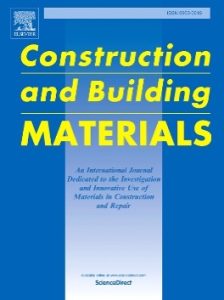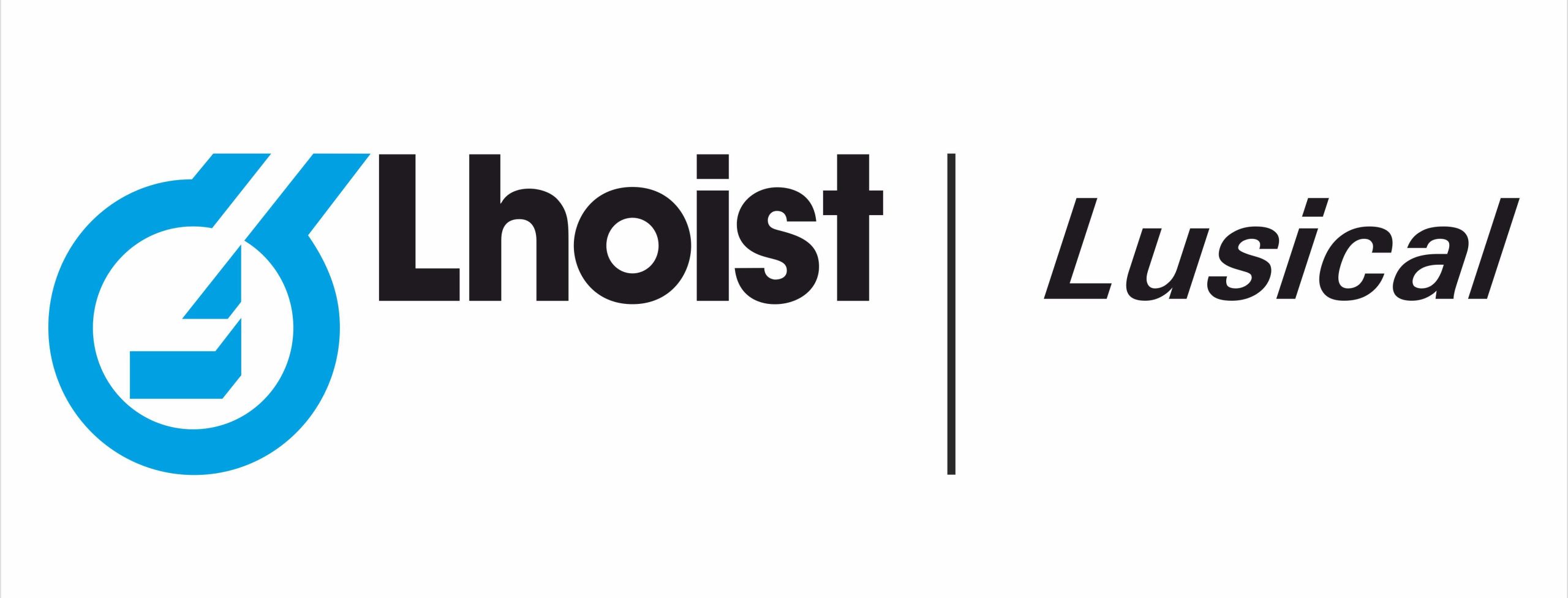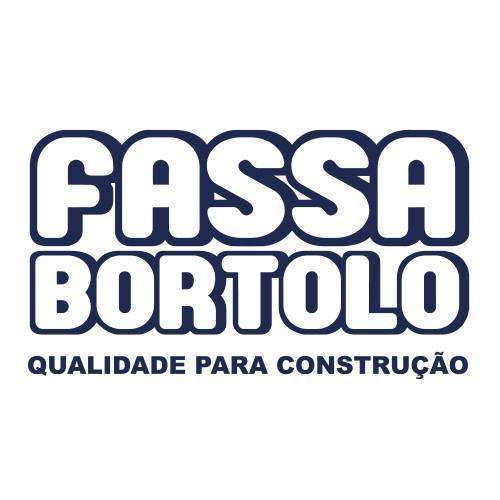International Conference
11 and 12 November 2024
Funchal, Madeira, Portugal
The SUBLime Conference on the next generation of sustainable masonry systems will be held on 11 and 12 November 2024.
This conference is held within the scope of the SUBLime Network.
SUBLime (Sustainable Building Lime Applications via Circular Economy and Biomimetic Approaches) aims to train researchers in multiple scientific and engineering fields for a better understanding and development of sustainable innovation solutions for mortars, renders and plasters in new construction and conservation of the built heritage.
This conference will be a key platform for dissemination of the SUBLime’s results, and everyone is invited to participate. This is also a great opportunity to discuss and share on-going research on sustainable masonry systems and other challenges.
This conference focuses on a wide variety of topics that contribute towards a more sustainable future in the world of masonry construction systems (both load-bearing and non-load-bearing). The following sub-topics have been identified:
Detailed Programme
We are delighted to present the detailed programme for the upcoming conference, designed to offer a comprehensive and enriching experience for all attendees. Attendees can look forward to a series of high-quality sessions featuring the latest research and developments in the field. These sessions will provide valuable insights and foster stimulating discussions among participants.
We are honoured to host an array of distinguished keynote speakers, leaders in their respective fields. Their presentations will offer in depth overviews into critical topics and emerging trends, ensuring that attendees gain a broad understanding of future directions.
A stimulating roundtable discussion focused on the importance of lime in new applications for the construction industry is planned. This session will bring together industry experts to explore innovative uses of lime and lime potential to revolutionize construction practices.
Beyond the formal sessions, we have planned a great social programme for participants. This includes a tour through beautiful sites in Madeira Island, allowing you to enjoy the stunning landscapes and rich culture of this beautiful location.
Join us for an unforgettable conference that combines cutting-edge knowledge with the charm and beauty of Madeira Island.
Check our Detailed Programme here.
Keynote Speakers

Title
Future readiness of lime-based building materials: from heritage to innovation
Prof. emeritus Koenraad Van Balen, dr.ir.arch – KU Leuven
Abstract
Construction materials that last more than 500 years, will last 500 years or more if applied today. Learning from the past and particularly from cultural heritage as a knowledge depository and inspiring solution database has driven us not only to develop preservation strategies but also to develop innovative sustainable and lasting construction materials. In depth research of lime mortar-based constructions integrating todays scientific insights and tools, helped understanding processes of carbonation and their influence on behaviour of masonry; It helped questioning he paradigms that “modern” building materials developed in the beginning of the X20th century has developed its insights on.
Short CV
Engineer-Architect Koenraad Van Balen, additional degree in conservation and a PhD in Engineering. Now an emeritus professor at the Civil Engineering department, he was the former director of the Raymond Lemaire International Centre for Conservation. He was member of the research Council of KU Leuven, initiators of the KU Leuven Institute for Cultural heritage. Former Secretary-General of ISCARSAH, member of ICOMOS Belgium, Monumentenwacht Flanders, WTA, RILEM and member of the Council of Europa Nostra. He is jury member for the European Heritage Awards and panel member of the European Heritage Label. He is involved in various World Heritage Sites. He is strongly involved in the European Institute of Technology (EIT) Culture and Creativity.

Title
Sustainable mortars and plasters from an industrial point of view
Dr. Tina Oertel – Sievert Baustoffe SE & Co. KG
Abstract
Sustainability has many facets. We will give insight into the development of sustainable mortars and renders using recycled limestone which attributes to the demand to increasingly replace raw materials from natural resources by recycled materials. Furthermore, we will present newly developed renders with improved thermal insulation properties as a necessity to keep heating energy in our buildings. All along the way, synergies are used by combining findings from university research projects, improvements of the raw materials industry und progress in the dry-mix mortar industry.
Short CV
Tina Oertel, born in 1985 in Germany, is Senior Team Leader in the Research and Development Department of Sievert Baustoffe SE & Co. KG. She is leading two research groups with a focus on renders for inside and outside application, e.g. thermal insulation mortars and reinforcing mortars for ETHIC systems. Furthermore, she is a member of the DIN standardization committee for plasters. Tina’s passion for building materials emanates from her studies of civil engineering at the Bauhaus University in Weimar and the Finger-Institute for Building Materials Science. She did her PhD along with the international graduate school of the Elite Network of Bavaria focussing on ’The Influence of Amorphous, Sub-Micrometer Silica Particles Ultra-High Performance Concrete’.

Title
Functionalization of lime mortars and plasters: A biomimetic approach
Prof. Carlos Rodríguez-Navarro – University of Granada
Abstract
Lime mortars and plasters have been used as building materials since the origins of pyrotechnology in the Levant ca. 12,000-14,000 years ago, and currently are experiencing a revival as compatible and sustainable materials in heritage conservation and modern construction. Extensive research has recently explored ways to improve their properties, particularly using Nature as an inspiration. Such a biomimetic approach is enabling the functionalization of lime mortars and plasters via different strategies that are reviewed here and include accelerated setting via enzymatic-like catalyzed carbonation, increased toughness via inter- and intracrystalline additive incorporation, modification of surface wettability and enhanced self-cleaning ability via surface microtexturing and photoactive nanoparticle incorporation, anti-biofouling capacity, increased radiative cooling, or self-healing properties.
Short CV
Carlos Rodriguez-Navarro, a geologist by training, is a full professor in the Department of Mineralogy and Petrology at the University of Granada (Spain), having joined the university in 1999. Previously, he was a research fellow at the Getty Conservation Institute (J. Paul Getty Trust, Los Angeles), from 1995 until 1999. His research interest focuses on heritage weathering and conservation, as well as on mineral formation and dissolution. He has published more than a hundred papers and several patents on topics ranging from salt damage, nanoscale processes during chemical weathering, bacterial mineralization, lime mortars functionalization, and mineral carbon capture and sequestration. He is a fellow of the Mineralogical Society of Spain and Editor-in-Chief of the European Journal of Mineralogy.

Title
Masonry systems: past, present and future
Prof. Jan Kubica – Silesian University of Technology
Abstract
The presentation will be covering construction and material systems used in masonry construction, both in European countries and in a broader geographical context, including other continents. The development and changes of masonry systems in historical terms will be shown, depending on the climatic conditions in given areas and the development of societies and the level of their economy. With reference to the current state, i.e. the 20th century and the beginning of the 21st century, the material and construction solutions most commonly adopted in various countries with variable climatic requirements and various dominant loads, including seismic ones, will be presented. An attempt will also be made, as far as it is currently possible, to outline the directions of development of masonry structures in the coming decades, taking into account the circular economy, CO2 reduction and the maximum use of natural and recycled raw materials.
Short CV
Full professor of structural engineering and the Head of the Department of Structural Engineering at the Silesian University of Technology in Gliwice with more than 30 years of experience in experimental techniques, advanced numerical modelling of masonry, concrete (including precast and prestressed concrete) and composite structures. Author or co-author of more than 200 publications. Member of many international and national bodies including five Polish Standard Committees (since 1994). His current scientific interests include modern cement-based and lime-based materials, methacrylate glues for steel strengthening, not-metallic reinforcement and graphene using in building materials applications, as well as geopolymers and the use of ANN.
Before the conference (on Sunday 10th of November), we will be organizing a Tour through beautiful sites in Madeira Island. This will be an opportunity to experience the stunning landscapes and rich culture of Madeira, as well as to start exchanges of experiences between participants. Below you can find a more detailed description of the Tour. The Tour has a maximum number of spots available, so early registration is recommended to secure your place. To register for the Tour, you must select that option during the registration process. The Tour has a nominal fee (co-payment) of 20€.
The Tour:
Around 09h00 departure from the Hotel up way on the hill by bus with some opportunities to enjoy incredible views at Funchal’s Ecological Park, at an altitude of 1129 metres. Pico Alto viewpoint offers a panoramic view over the capital of Madeira, its bay and the Atlantic.
We will go directly to Vereda dos Balcões for a short trail (1.5 km long train + 1.5 km return), that takes you to enjoy the views from the Balcões viewpoint. The Vereda dos Balcões trail will be an opportunity to come across indigenous and endemic species, offering different shades of green to the Laurissilva forest. At the end of Vereda dos Balcões, you will arrive at the Balcões viewpoint, where you can take a glimpse at a magnificent scenery.
Continuing our tour, we will go to Santana and Quinta do Furão, where we will have lunch. Quinta do Furão stands on a cliff top at Achada do Gramacho in Santana, on the northeast coast of the Island of Madeira.
After lunch we will stop at Santana for a short break and some typical pictures next to Casinhas de Santana, an icon for the peculiar beauty of their architectural style. With a triangular shape and covered in thatch, they are the greater symbol of this municipality on the north coast of the island of Madeira.
We will return to Funchal with a panoramic view of some Island views. We will finish our tour on a historic winery. Visit accompanied by a brand ambassador, who will walk you through the different areas of the Wine Lodge, share secrets of Madeira wine production and offer a wine tasting at the end of the visit.
Special accommodation rates
Stay at the prestigious 5-star Pestana Casino Park in Funchal, designed by renowned architect Óscar Niemeyer. You can take advantage of a special accommodation rate at the Hotel, and enjoy its luxurious amenities including an infinity pool, spa, and panoramic restaurants. Special rates for conference attendees are:
Book your accommodation at the discounted price through the registration platform.
Hotel
The Pestana Casino Park is a 5-star hotel in Funchal, Madeira, surrounded by 15,000 m² of private gardens. Designed by world-renowned master architect Óscar Niemeyer, this hotel is adjacent to the Funchal bay cruise port. Plus, it is only 5 minutes on foot from the city centre and the epicentre of the city’s social and cultural life. Its privileged location on the shores of the Atlantic Ocean makes it one of the most famous hotels on the island of Madeira. It features an infinity swimming pool, gardens with peaceful alcoves, a private car park available for a fee, a Spa where you can schedule a massage and/or Magic Spa treatment, and an indoor swimming pool (25º) with water jets, jacuzzi, Turkish bath, sauna and gym. You can enjoy the restaurants and bars with panoramic views, as well as the tennis court.
Funchal
The conference will be held at the city of Funchal in Madeira (Portugal), at Hotel Pestana Casino Park, which is very convenient and well equipped for conferences in terms of facilities, transportation, proximity to other hotels and to the city centre. Funchal is one of the region’s oldest municipalities and it became a city in 1508. The city of Funchal has many leisure activities on offer, you can visit the magnificent monuments, museums and gardens, shop, explore its Portuguese-style cobbled streets or simply have a pleasant time sitting on a terrace. The temperate in November ranges between 17 and 21ºC. The island of Madeira is located to the southwest of mainland Portugal, in the Atlantic Ocean. The conference takes place in the island’s capital, Funchal. The Municipality of Funchal extends over a large hill, arranged in an amphitheatre, from the coast up to Pico do Areeiro, situated at 1818 m above sea level. The island is full of attractions, including beautiful hiking trails, breath-taking viewpoints and a wide range of excursions. It also has a long history, with charming villages, museums and art galleries. Madeira is very well-connected and easily accessible, with daily short flights from Lisbon and Porto, and more than 60 direct connections to European cities.
Proceedings
Full Papers
The proceedings for the Full Papers of the SUBLime 2024 Conference – Towards the next generation of sustainable masonry systems: Mortars, renders, plasters and other challenges have been published by Matec Web of Conferences with volume number 403 (2024).
Each paper has received an individual DOI. The proceedings can be retrieved from here.
Extended Abstracts
The proceedings for the Extended Abstracts of the SUBLime 2024 Conference – Towards the next generation of sustainable masonry systems: Mortars, renders, plasters and other challenges have been published by the University of Minho, with an ISBN: 978-989-35653-2-2.
The proceedings can be retrieved from here.
 A special issue of selected conference papers is planned to be published in the Journal Construction and Building Materials (Elsevier, Special Issue). The Organizing Committee will select a set of articles, which must be subsequently submitted by the authors, with extended content, for review and possible publication
A special issue of selected conference papers is planned to be published in the Journal Construction and Building Materials (Elsevier, Special Issue). The Organizing Committee will select a set of articles, which must be subsequently submitted by the authors, with extended content, for review and possible publication
| Early bird (until July 8th 2024) | Regular (after July 8th 2024) | |
| Regular | 475€ | 575€ |
| PhD students | 325€ | 400€ |
CANCELLATION POLICIES
For inquiries about registration, reservations and payments please contact:
Maria João Coelho
Tel: +351 222 043 571
Email: maria.j.coelho@abreu.pt





Institutional Support

This Conference is organised by the SUBLime consortium. This project has received funding from the European Union’s Horizon 2020 research and innovation programme under the Marie Skłodowska-Curie grant agreement No 955986.
